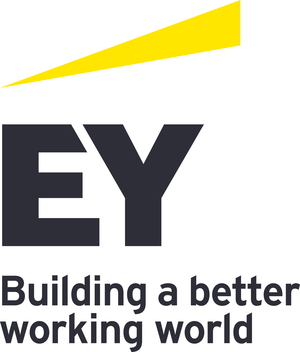BOSTON, May 7, 2014 /PRNewswire/ -- New survey research finds that the majority of payers in the US and Europe believe that drug adherence solutions and data that pharma companies possess are vital to lowering health care costs and improving outcomes. However, lingering mistrust of the pharma industry is likely to stymie efforts by pharma companies to engage with payers in these areas without a fundamental change from current approaches. These and other findings were released today in Progressions: Navigating the payer landscape, EY's annual report on the global pharmaceutical industry.
As part of this year's Progressions report, EY surveyed 30 US payers and 30 European payers on their current and future needs and preferences, and 18 global pharmaceutical companies on how well they understand payers' needs and attitudes. This survey was supplemented by in-depth interviews with industry executives in the US and Europe. Key findings include:
Costs above all else:
- Payers are focused on cost containment and budgetary predictability over outcomes-based approaches.
- While prescription drugs only account for about 10% of health care expenditures, payers see curbing rising drug costs as a more important business challenge than non-drug costs. Eighty-eight percent of payers strongly or somewhat agreed that "drug prices are a major driver of health care cost increases", while only 42% of pharma respondents did the same.
There's a disconnect on data:
- While payers are most interested in comparative clinical trial data, pharma companies say that the data they use most for demonstrating value is from placebo-controlled trials.
Pharma has a trust deficit:
- Seventy-eight percent of payers agree that "boosting drug adherence is a critical component of lowering health care costs" and 57% agree that "pharmaceutical companies have data that is vital for measuring and improving outcomes". However, fewer than half of payers (43%) agree that pharma's data is credible for measuring and improving outcomes.
- Most payers do not think that pharma companies developing "beyond-the-pill" services can be unbiased between their products and those of competitors, with only 15% of respondents even somewhat agreeing with that statement.
"More than ever, payers today need help with implementing health care reforms. But while pharma companies have useful data and potential solutions in areas such as drug adherence, they are unlikely to get much traction because payers simply don't trust that they have the impartiality required," said Patrick Flochel, EY's Global Pharmaceutical Leader.
Flochel continues: "The good news is that payers are open to evolving the types of interactions they have with pharma from simple negotiations around access and price to more strategic, enduring relationships around their biggest challenges. To succeed, pharma companies will have to approach payers in a fundamentally different way."
Building blocks for strategic payer engagement
In response to health reforms focusing on outcomes, many pharma companies have been experimenting with services and solutions that expand beyond the pill. In considering the adoption or expansion of such approaches, companies should abide by some guiding principles to engage with payers:
- Making the right comparison. At a time of rapid change, pharma companies should make decisions about moving beyond the pill based on comparisons to the drug business of tomorrow, not the drug business of yesteryear.
- Approaching payers strategically and comprehensively. To move beyond pilots, Progressions suggests four key components: screening payers to identify the best targets; segmenting to customize offers to different payers; sequencing to expand solutions more broadly over time; and building sustained, enduring relationships.
- Developing data-driven insights and interventions. The big opportunity in engaging payers with big data is in building the complete picture and targeting the small percentage of patients who will drive the biggest percentage of costs.
- Creating customer-centric solutions. Payers are interested in solutions that look across disease franchises, span the cycle of care and are unbiased between the products of different manufacturers. Pharma companies need to ensure they are creating solutions that help payers address their challenges — rather than merely to sell more product.
- Being transparent to rebuild trust. Without trust, pharma's data and solutions will get little traction with payers.
"Solving complex health challenges will require collaborations among many participants in the health ecosystem – including pharma companies and payers. Thus restoring trust with payers and the public is perhaps the most urgent and important issue facing the pharmaceutical industry today," says Glen Giovannetti, EY's Global Life Sciences Leader. "This is no longer just about doing the right thing — it's about doing the right thing for business. Companies urgently need to become more consistent, proactive and transparent in trust-building initiatives."
Notes to Editors
Survey Methodology
For Progressions 2014, EY conducted surveys of 30 US payers, 30 European payers and 18 pharmaceutical company representatives from functions such as Market Access and Managed Markets. The survey was conducted in January 2014. EY supplemented the survey with in-depth interviews with over 30 senior executives from numerous countries including the US, Germany, UK, Switzerland, the Netherlands and France.
How EY's Global Life Sciences Center can help your business
Life sciences companies — from emerging to multinational — are facing challenging times as access to health care takes on new importance. Stakeholder expectations are shifting, the costs and risks of product development are increasing, alternative business models are manifesting, and collaborations are becoming more complex. At the same time, players from other sectors are entering the field, contributing to a new ecosystem for delivering health care. New measures of success are also emerging as the sector begins to focus on improving a patient's "health outcome," and not just on units of a product sold. Our Global Life Sciences Center brings together a worldwide network of more than 7,000 sector-focused assurance, tax, transaction and advisory professionals to anticipate trends, identify implications and develop points of view on how to respond to the critical sector issues. We can help you navigate your way forward and achieve success in the new health ecosystem.
For additional insights and perspectives on the issues and challenges ahead for the life sciences industry, visit ey.com/lifesciences or connect with us on our blog at lifesciencesblog.ey.com. You can also follow us on Twitter @EY_LifeSciences.
About EY
EY is a global leader in assurance, tax, transaction and advisory services. The insights and quality services we deliver help build trust and confidence in the capital markets and in economies the world over. We develop outstanding leaders who team to deliver on our promises to all of our stakeholders. In so doing, we play a critical role in building a better working world for our people, for our clients and for our communities.
EY refers to the global organization, and may refer to one or more, of the member firms of Ernst & Young Global Limited, each of which is a separate legal entity. Ernst & Young Global Limited, a UK company limited by guarantee, does not provide services to clients. For more information about our organization, please visit ey.com.
This news release has been issued by EYGM Limited, a member of the global EY organization that also does not provide any services to clients.
ey.com/progressions2014
| Peter Kelley |
Gregory Kelley |
| EY Global Media Relations |
Feinstein Kean Healthcare |
| +44 (0) 207 980 0333 |
+ 1 404 836 2302 |
Logo - http://photos.prnewswire.com/prnh/20130701/NY40565LOGO-b
SOURCE EY
WANT YOUR COMPANY'S NEWS FEATURED ON PRNEWSWIRE.COM?
Newsrooms &
Influencers
Digital Media
Outlets
Journalists
Opted In






Share this article